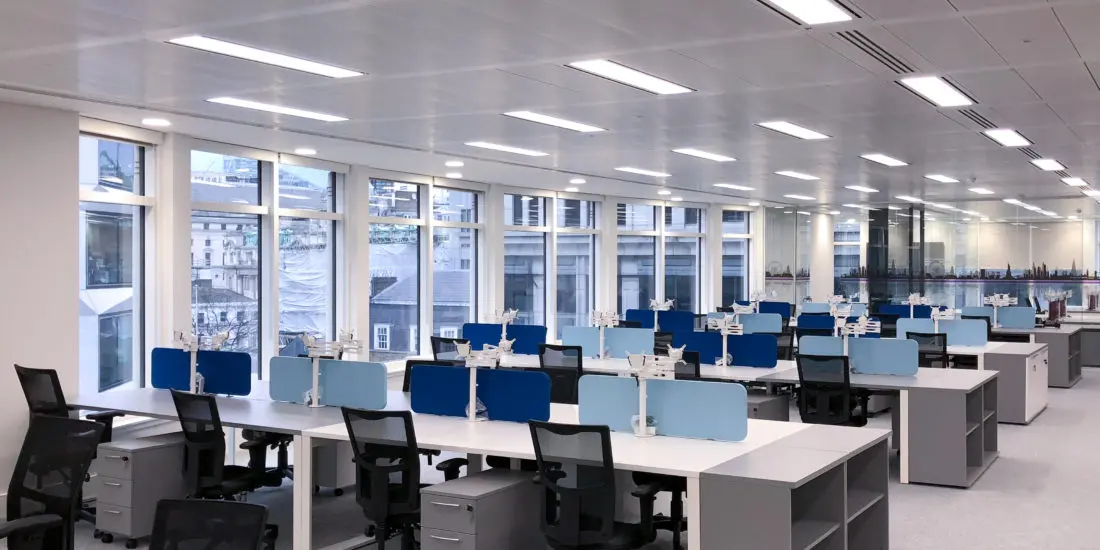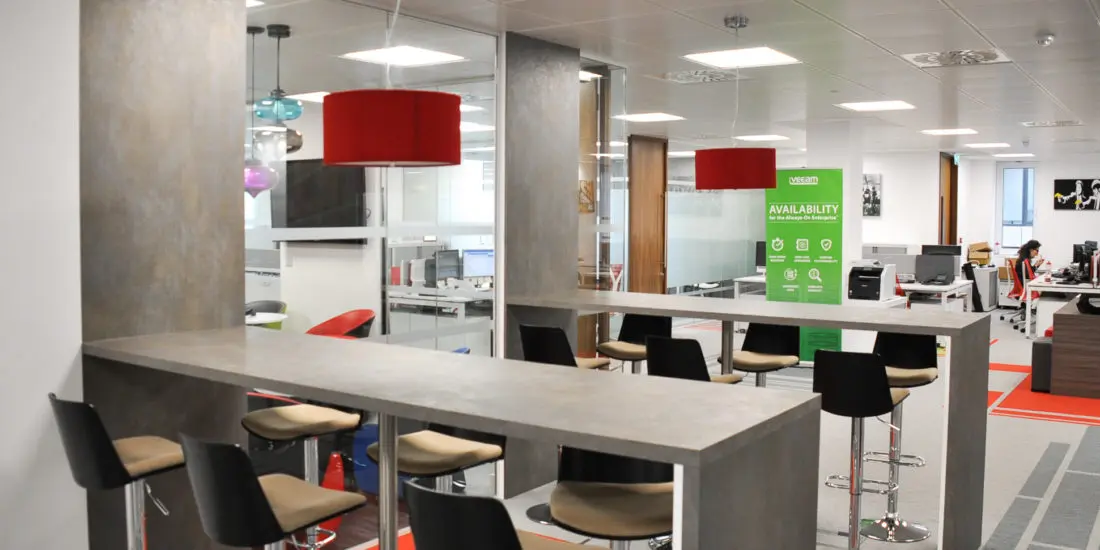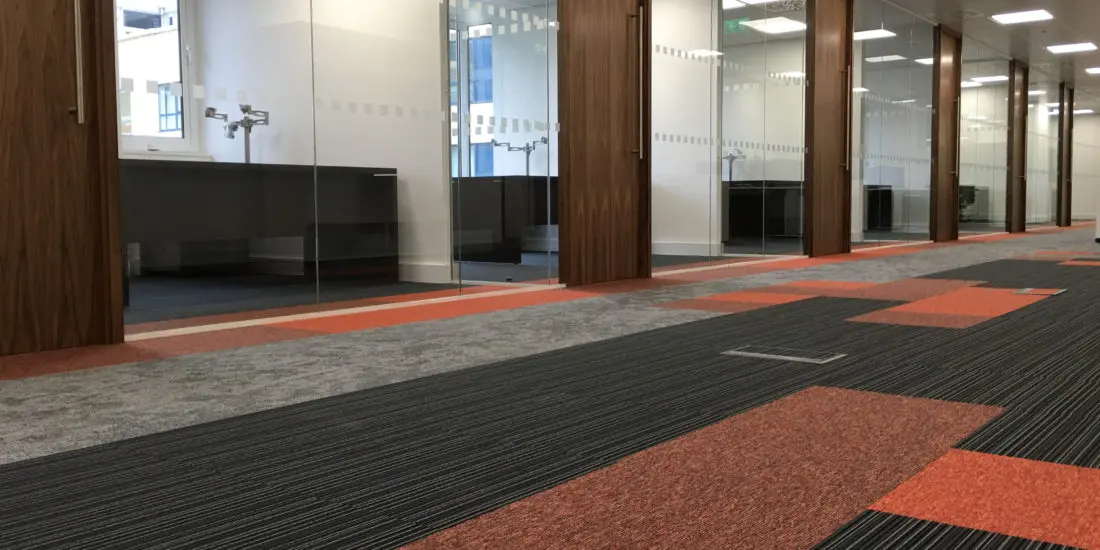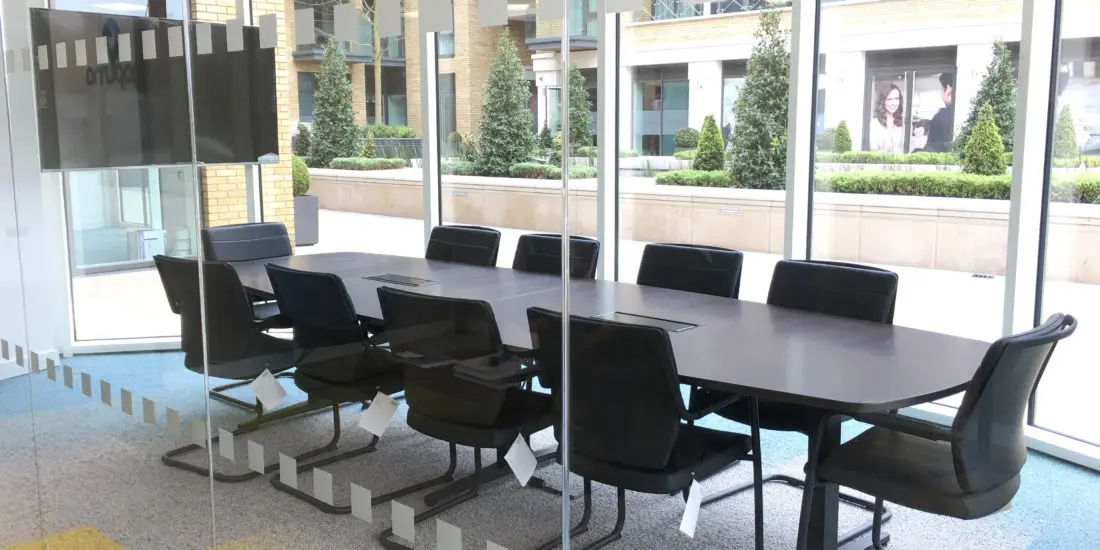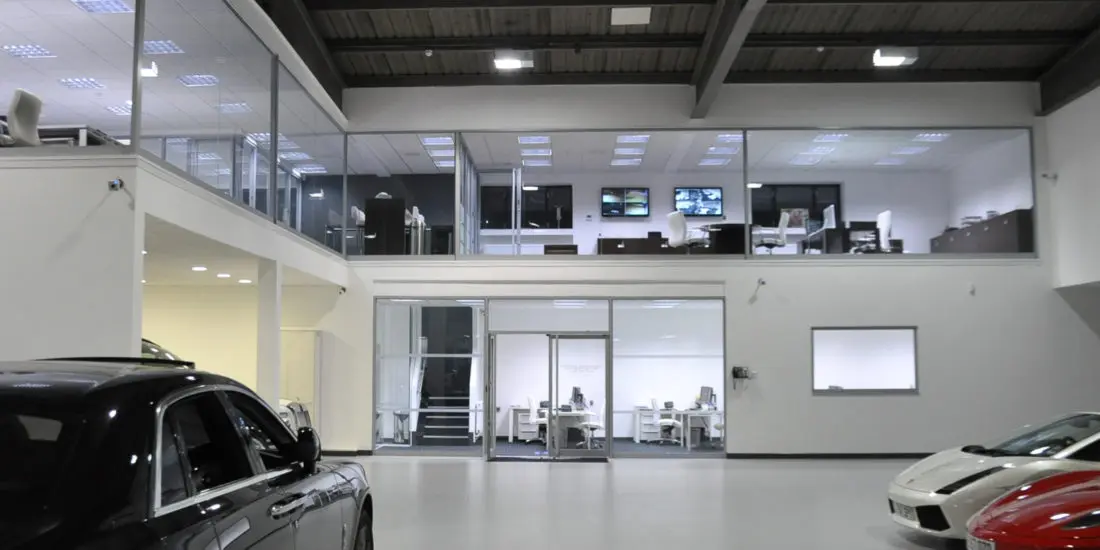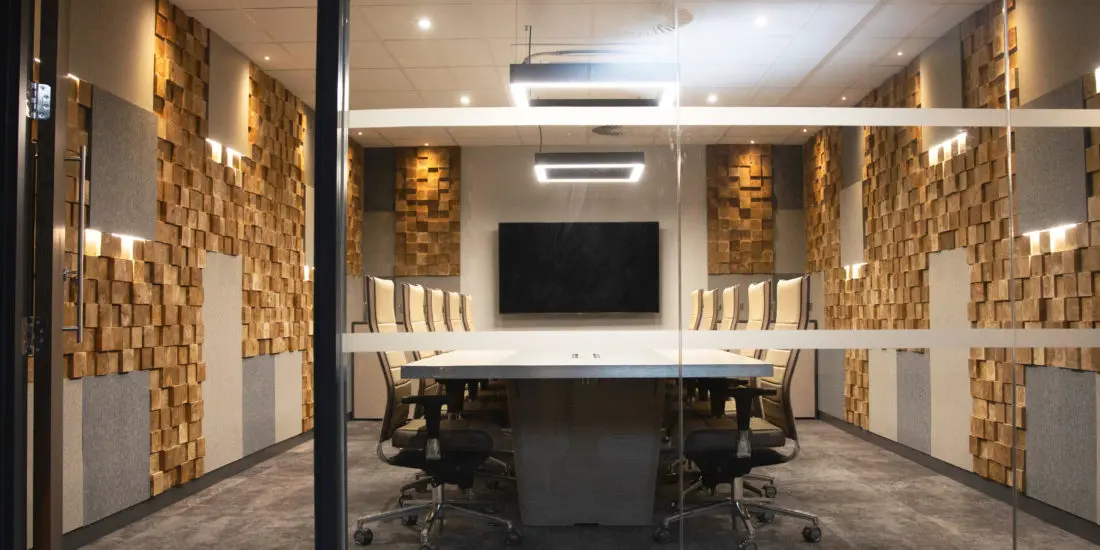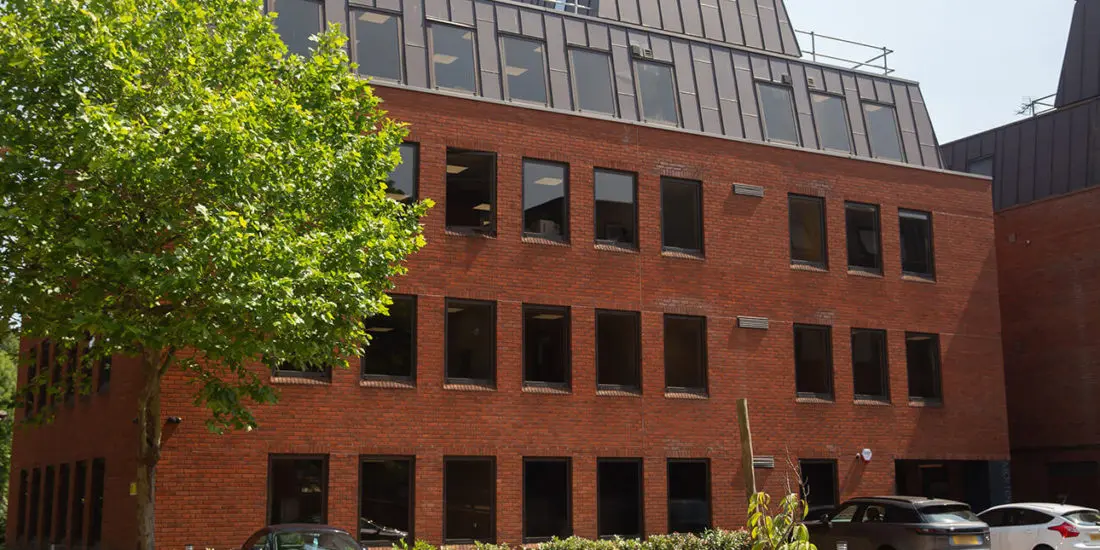Modern office partition design incorporates varied materials to create
vibrant workspaces.
Glass
partitions diffuse natural light while maintaining
privacy, enhancing mood and reducing energy costs.
Metal components offer sleek durability
with sustainable attributes, whilst wooden elements introduce warmth and
biophilic benefits.
Acoustic
performance varies notably, from sound-absorbing cork
to high-STC plasterboard systems.
Innovative
sustainable options include bamboo, recycled glass,
and living walls that purify air.
These material choices shape not just the
space, but the entire workplace experience.
Metal and Composite
Materials: Balancing Durability and Design
Metalmaterials and composite materials have significantly influenced modern office
design, introducing an industrial
elegance that is both sleek and durable. These aesthetics bring a sleek, such while offering unmatched durability for high-traffic
environments. Materials like aluminium and stainless steel, not only resist
rust but also offer a contemporary aesthetic that is perfect for high-traffic
environments.
The composite benefits extend past mere
appearance. Metal composite materials, two metal sheets with a thermoplastic
core, deliver lightweight strength
that reduces structural support requirements. These modern solutions
incorporate up to 70% recycled content
while offering exceptional design versatility. Office designers now utilise
these materials to create spaces that feel both liberating and functional. The
integration of metal systems further improves thermal efficiency, proving that today's workplace partitions don't
just divide space—they redefine it. Movable partitions provide additional
flexibility for dynamic office environments that require adaptable space
management solutions.
Wood and Natural Elements in
Contemporary Partition Systems
The renaissance
of wood in office design has changed sterile
workplaces into organic environments
that staff genuinely enjoy inhabiting. Contemporary wooden partition systems
blend functionality with natural
aesthetics, creating spaces that breathe life into daily work routines.
These elements serve as more than mere dividers—they're statements of
sustainable intent.
With customisable finishes ranging from
light ash to rich mahogany, wooden partitions adjust to any office narrative
while maintaining their inherent warmth. They shine particularly in biophilic design approaches, where the
marriage of wood with living plants creates microcosms of nature indoors. The psychological benefits are undeniable:
employees surrounded by natural elements report feeling calmer and more
creative. These wooden wonders often integrate smoothly with
technology—acoustic panels disguised as beautiful veneer surfaces that absorb
the background hum of open-plan offices. Combined with full glass walls, wooden elements maximise
natural light penetration while maintaining the privacy and sectioning needed
in modern office environments.
Acoustic Performance Across
Different Partition Materials
Sound management stands at the crossroads
of productivity and well-being in
today's office environments, with partition
materials playing a crucial role in achieving acoustic balance. Different
materials offer varying degrees of performance—insulated plasterboard
partitions deliver impressive STC
ratings of 42-50, whilst double-glazed glass options provide both
transparency and respectable noise
reduction.
The true champions of sound absorption? Polyester-based
options like SoundBlox panels with their NRC rating of 0.40, crafted from
recycled materials that convert noise into peace. Modern insulation techniques
have transformed even basic partitions, changing them from mere visual dividers
into acoustic safeguards. For the
pinnacle in sound isolation,
slab-to-slab constructions reaching STC ratings above 60 create sanctuaries of
quiet amid open environments, proving that in today's liberated workspaces,
acoustic performance isn't just nice to have, it's indispensable. These
partitions can be complemented with acoustic ceiling baffles that enhance vertical
sound absorption for comprehensive noise management throughout the office
space.
Sustainable Material Options
for Environmentally-Conscious Offices
As environmental consciousness permeates
corporate principles, sustainable
material choices for office partitions have developed from niche
alternatives to mainstream necessities. Forward-thinking organisations are
embracing bamboo benefits, utilising
this rapidly renewable resource that offers impressive strength while demanding
minimal water, perfect for the eco-minded workspace.
Cork sustainability represents another
groundbreaking option, with harvesting methods that allow trees to regenerate
naturally while providing warm, sound-absorbing partitions. In addition to
these star players, recycled glass
creates stunning translucent dividers
that reduce landfill waste, while living
walls change partitions into air-purifying vertical gardens.
The beauty of sustainable partitions lies in their versatility. Modular designs allow for reconfiguration as office needs progress, extending usefulness and minimising waste. These materials don't just protect the planet; they create healthier, more inspiring spaces for the humans who inhabit them. Implementing biophilic design elements through sustainable partition materials connects employees to nature, enhancing overall well-being and productivity in the workplace. This forward-thinking approach to office design inspires optimism for a healthier, more sustainable future.







